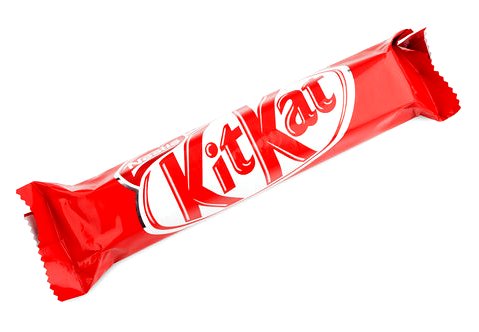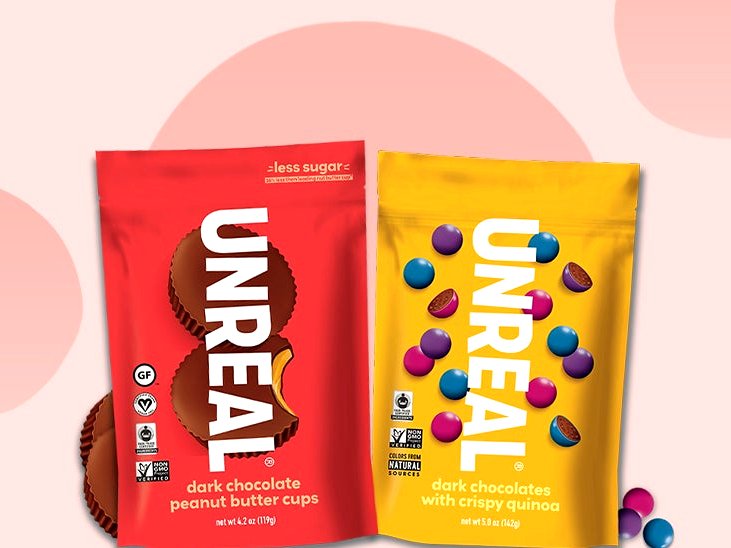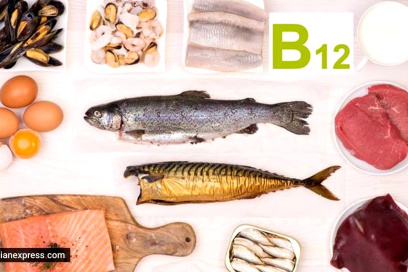Being part of the vegan community, going into a candy aisle can be like undertaking an intimidating mission, which requires meticulous consideration of every detail. Classic candy bars may tempt us, yet their ingredients may impede on an active plant-based lifestyle. One such infamous candy bar which leaves vegans feeling despair is the legendary Kit Kat bar.
Curiosity begets the question, are Kit Kats vegan-friendly? To unravel this essential topic, it requires an in-depth analysis of their ingredients list. Unfortunately, current Kit Kats sold in the United States contain various non-vegan-friendly components that make our judgment on this iconic chocolate-covered and crispy wafer bar more complex than expected.
Dairyland-derived ingredients like milk are present in these candy bars, along with non-sustainable palm kernel oil sourced from palm groves located outside of sustainability criteria, sugar processed with bone char, and wheat flour processed using bone char as ingredients. But don't fret: we are here to assess their vegan-friendliness and provide potential replacement options to those suffering from sugar cravings.
Sustainable production of palm oil is an urgent global issue we will examine as part of a veganism education campaign. Come along as we crunch down numbers to answer one burning question on every vegan's mind: are Kit Kats vegan?
I. "Are Kit Kats Vegan?"
Assessing the vegan status of Kit Kats requires an in-depth review of their ingredients. At first glance, American Kit Kats sold in stores appear to contain various components, including:
- sugar
- wheat flour
- palm kernel oil
- cocoa butter and chocolate
- lactose
- soy lecithin
- salt
- yeast
- natural flavoring
- PGPR
However, this list may only offer glimpses into what lies within. To truly assess this delicious confectionary, one needs to investigate each of its individual components further. class="instagram-media" style="height:500px" data-instgrm-version="14">
Kit Kats do not fit within a vegan diet for one very obvious reason: milk. Their milk chocolate composition contains dairy milk that does not comply with veganism; thus making them incompatible with veganism as such. Essentially this property establishes whether they are vegan; it clearly negates this question but nonetheless leaves room for further speculation on this matter. Nonetheless, much like any great novel the plot thickens further!
Kit Kats contain sugar and wheat flour, but their production processes may involve animal cruelty via bone char utilization. As these two ingredients don't imply animal content directly, veganism enthusiasts may be leery about accepting them into their diet.
Furthermore, palm kernel oil found in most Kit Kat products carries with it an air of controversy due to its production process which often leads to rainforest destruction, exploitation and displacement of indigenous communities and animals; making its sustainability contentious.
Now we can delve deeper into what makes Kit Kats suitable for vegans. Cocoa butter and chocolate come from cocoa beans which do not contain animal products - both can fit nicely into vegan-friendly diet regimes. However, as some chocolate companies may incorporate milk or other animal ingredients, we must pay careful attention when determining their vegan status.
Soy lecithin, commonly found in Kit Kats, is an emulsifier derived from soybeans that has long been considered animal substance-free. Although, some vegan loyalists may opt out due to genetically altered soybean cultivation practices and associated environmental impacts associated with soy farming.
As previously discussed, answering the question of whether Kit Kats are vegan requires an in-depth examination of its various components and production processes, from cocoa butter and chocolates to soy lecithin and milk - with some components like cocoa butter being vegan-friendly while other such as bone char usage or palm kernel oil extraction procedures further complicating matters.
II. Dairy-Free Chocolate Alternatives
Now that we've highlighted how Kit Kats don't fit within a vegan lifestyle due to their presence of milk chocolate, you may feel intimidated at the thought of satisfying your sweet tooth without betraying your plant-based beliefs. But don't fret: there is an array of dairy-free chocolate alternatives on the market which provide delicious chocolate flavor without betraying social or moral norms or losing touch with one's beliefs.
Enjoy Life
Enjoy Life is worthy of your consideration as they boast an exquisite selection of chocolate products tailored specifically for vegan, gluten-free and allergen-free diets. With none of the eight most commonly known allergens present - making Enjoy Life the ideal dairy alternative for those with allergies or dietary restrictions - and offering dark chocolate, rice milk chocolate and caramel-filled options sure to please the senses!
Alter Eco
Alter Eco is an outstanding alternative to Kit Kat. Their cocoa comes from small-scale farmers who practice sustainable and fair trade practices, while their chocolate bars boast organic, non-GMO ingredients and offer an array of flavors such as classic dark chocolate to more unusual ones such as mint crunch or quinoa crunch crunch!
Endangered Species Chocolate
Endangered Species Chocolate is another organic, non-GMO and fair trade chocolate brand offering vegan-friendly offerings. Their dark chocolate bars are gluten-free, soy-free, dairy free with customizable cocoa percentage options to meet every chocolate craving!
If you are searching for an ethical alternative to Kit Kats without sacrificing taste, Enjoy Life, Alter Eco and Endangered Species are great chocolate suppliers to consider. Each company embraced ethical and environmental ideals within their business practices which you can easily support - so feel free to enjoy a guilt-free chocolate indulgence by purchasing these bars either retail or online stores.
Check out Nowheychocolate.com for dairy-free chocolate alternatives.III. Sustainable Palm Oil
Kit Kat's use of palm kernel oil raises numerous sustainability questions about its production and consumption. Non-sustainable palm oil extraction practices have caused irreparable harm to our environment, leading to deforestation, habitat destruction for rare and endangered species and human rights violations - thus leaving us wondering the truth about its sourcing practices employed during its production.
Curiously, the company has chosen not to provide any information regarding this topic on their website or packaging - increasing ambiguity over its environmental and social effects of use. This secrecy leaves environmentally aware consumers confused as they attempt to make informed decisions when it comes to consumption decisions.
There are already opportunities to promote sustainable palm oil production through initiatives of the Roundtable on Sustainable Palm Oil (RSPO), where companies operating under its principles pledge to use only sustainable palm oil in their products. Furthermore, some brands have begun using other ingredients like coconut or shea butter as alternatives.
As consumers with an eye towards ethical and sustainable practices, our actions matter. By choosing products mindfully that support companies that prioritize sustainability and ethical practices - such as those made with sustainable palm oil or that limit palm oil usage - we send signals that demand is rising for sustainable options.
>“Let food be thy medicine, and let medicine be thy food.” - Hippocrates
Conclusion
While Kit Kat's palm kernel oil remains uncertain, we can support sustainable palm oil production and have an immediate and tangible impact on the environment, society, and planet by making ethical and sustainable consumer choices that support sustainable palm oil production. By supporting efforts like those by the Roundtable on Sustainable Palm Oil Organization (RSPO), buying products which prioritize sustainability where possible and opting out of palm oil wherever possible - let us all make an effort towards making informed choices that will have real-life consequences!
Learn about Sustainable Palm Oil at WWF UK.IV. Vegan-Friendly Candy Options
If you find your tastebuds craving sweets after meals but still wish to live an ethical and vegan lifestyle, no need for worry! Kit Kats may not fit this bill exactly but there are many tasty cruelty-free treats out there which may satisfy those cravings! Let's explore a few examples here:
Trader Joe's Vegan Joe-Joe's
are plant-based versions of their classic cookie sandwiches, available in various flavors such as vanilla cream or chocolate with chocolate cream - making these treats an irresistibly crunchy, wafer-filled edible! Perfect for anyone seeking the crunchy crunchiness that only vegan-based edibles can provide!
UNREAL Dark Chocolate Quinoa Gems
offer an innovative and healthier take on classic chocolate-covered candies, featuring chocolate drizzled quinoa clusters with no artificial colors, flavors or preservatives added - creating bite-sized treats free from artificial flavoring, colors or preservatives! Crafted using sustainable sources and free from artificial additives.
SmartSweets Plant-Based Gummies
If you love traditional gummy candies but want animal-free options, look no further! These plant-based gummies taste and look similar to regular candies but contain none of the guilt caused by gelatin or any animal by-products; instead they utilize nature's own sweeteners such as stevia and monk fruit sweeteners, with tantalizing flavors like peach rings and sour gummy bears for an amazing sweet experience!
>Remind yourself that these vegan-friendly candy options are only representative of what is out there - there is much more available! By trying these alternatives, you can satisfy your sweet tooth while staying away from animal by-products while supporting companies who prioritize ethical and eco-sustainable practices.
Sticking to a Vegan Lifestyle
But wait a second - what about sticking to a vegan lifestyle? Sticking to it has additional perks - such as being beneficial for Mother Earth as livestock production and animal agriculture emit greenhouse gasses that contribute significantly to warming our planet, while adopting a plant-based diet reduces our carbon footprint and provides significant carbon offset benefits compared with eating meat or animal products; in addition, studies have linked plant-based diets with lower risks of chronic illnesses like heart disease and cancer.
Vegan Confectioneries
Once again, vegan confectioneries provide plenty of delicious choices without compromising ethics, well-being or planet Earth's sustainability. Make the switch today and support companies that promote ethical as well as eco-friendly practices; that way you could have an impactful positive influence on more than one level!
Conclusion
As we continue to explore plant-based diets, it's important to consider the vast array of vegan-friendly candy options available. In this study, we used Kit Kats as a starting point and conducted a thorough analysis of their ingredients to determine whether they meet the strict dietary requirements of veganism. Through this study, we have gained valuable insights into the intricacies of vegan-friendly candy and can confidently say that, while not all Kit Kats meet vegan standards, there are many other delicious and nutritious options out there to satisfy your sweet tooth. With a little research and experimentation, anyone can enjoy the benefits of a plant-based diet without sacrificing their love of candy!




